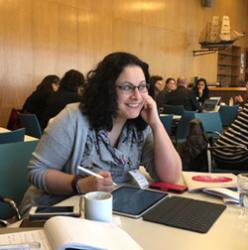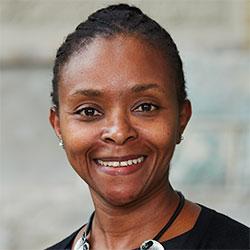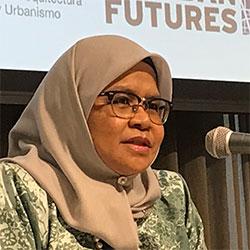Why participation?
Professor Nabeel Hamdi, professor emeritus of Housing and Urban Development of the Oxford Brooks University in Oxford, visited Mistra Urban Futures on November 23rd, 2016 and held a PhD seminar on the theme Why participation? Many of the Gothenburg platforms PhD students took part in the discussion together with other post-doc researchers and practitioners engaged in participatory work and processes.
Nabeel Hamdi being one of the few persons internationally, who persistently have been trying to understand from the ground, what local knowledge is about and its relationship to a larger urban discourse. From a grass-root perspective and from genuinely place based experiences Professor Hamdi has extracted his unique research methodology, in which the spatial or physical small act often proceeds the larger framework of research contextualisation. Nabeel Hamdi’s development methodology includes improvisation, narration and ‘knowing-in-action’.
Participation according to Nabeel Hamdi
What is participation? According to professor Hamdi it is about people taking responsibility with authority with or in partnership with other stakeholders in the governance of place. Participation is key to success and actually to effectiveness, as it gives you access to information that you never could have got without participatory processes. Identifying catalysts from where to start a process, and creating partnerships that works towards a common and identified goal is crucial.
Questioning the definition
In the book The Spacemaker's Guide to Big Change, professor Hamdi criticizes definitions of participation that is merely about ambitions, for example to engage for the common good. The seminar discussed whether his definition of participation, is more about facilitation, namely that someone with power, assists in a governance process. Or who is it that takes the responsibility with authority? And why should not the act of participation be about ambitions? Professor Hamdi’s take on the matter was that in governance standards are used. But the question is how many standards we need? We must have some kind of authority, and most often a high level of authority. One example would be how water in a community is distributed. It is hard to give people within that community the authority for the stand-pipes. The solution would be to establish a group within the community and make one person speak on behalf of the group and let him /her into the high-level group within the municipality.
Participation in developed countries
It was then discussed whether participation is possible/essential in Global North countries as well? One PhD student suggested that we are beginning to lose a sense of community in Gothenburg, and that apathy seems to be prevalent both in the low-income and high-income areas. How do we then encourage participation in a non-patronizing way and how do we mobilize the upper class to care more about the lower? According to professor Hamdi it’s a matter of how to integrate people. How do we get people to see problems as collective? Empathy and to get involved is important. It’s again about identifying catalyst and see what is possible. What is the least we can do to start involvement and change? We should start transformation on a small scale and let it grow. Important is that the results are immediate and tangible. For example, plant a tree and make it into a symbol of change.
Participation for whom?
The neighbourhoods of cities are very specific in many ways – level of development, urban fabric specifications, level of education, affluence, etc. All these diverse neighbourhoods should participate in the designing process to finally deliver a sustained and resilient city. A further question was then; How can then participation can be initiated in very diverse communities in cities? An example opposite to what is usually discussed, if we take an elitist residential neighbourhood where 60% of the residents with higher education and a high income. Where there are 500 cars per 1000 inhabitants, 20% electrical car ownership, and where the entirely residential area is constituted of single family houses with a beautiful view to the sea. How would participation in these communities be initiated and by whom? Who are the “space makers” here?
Professor Hamdi explains that participations is not about consensus, but it’s about working with averages. It’s about how to bring different interests together. Richer areas can be involved if they can see their interests are being taken into account. Breaking down barriers of perception of quality is important. There is a need to access resources to build sufficiency and develop practitioners. It’s also a question who controls the resources. It takes time to change attitudes. Language and graphics is key and there is a lot of tools that can be used. Some aspects will be contextual so the notion of best practices are tricky to employ.
Empathy comes with engagement
Several questions was raised regarding engagement: How do you address people that do not want to participate? If you proceed by including those inhabitants that volunteer for participating, is this enough to say that it is a truly participatory process? Can inhabitants choose to participate only a little and still feel that they are part of the process? Could you elaborate on how much engagement we can expect or is reasonable to expect from users/inhabitants? If we do not get people engaged, should we not do any development? You can´t expect having everybody involved, says professor Hamdi. Goals must be tangible – to save the world is too abstract for most people. People don’t show up just to be nice, something has to happen. Catalysts are needed and kids can for example act as catalysts and manage to get resources quite easily. One example would be collecting money for a playground. Empathy for others comes with engagement.
More about the seminar Why participation?
Guest lecture: Deciding Urban Interventions
Chalmers Department of Architecture, Chalmers Area of Advance Building Futures and Mistra Urban Futures arranged a guest lecture on the theme Deciding Urban Interventions also on November 23rd 2016. Watch the presentation by professor Nabeel Hamdi.
More about Deciding Urban Interventions
About Professor Nabeel Hamdi
Professor Nabeel Hamdi is professor emeritus of Housing and Urban Development of the Oxford Brooks University in Oxford, where he founded a programme on Development Practice in 1992. He is also teaching at the Development Planning Unit at London University College. He holds honorary doctorate and fellowships at University of Pretoria and University of Cape Town, and has held an adjunct professorship at the National University of Technology, Trondheim.
Professor Hamdi has consulted on housing, participatory action planning and upgrading of slums in cities to all major international development agencies, and to charities and NGOs worldwide. He is most famously the author of The Placemakers Guide to Building Community (Earthscan 2010), Small Change (Earthscan, 2004), Housing Without Houses (IT Publications, 1995) and recently The Spacemakers’s guide to big Change (Earthscan, 2014).







